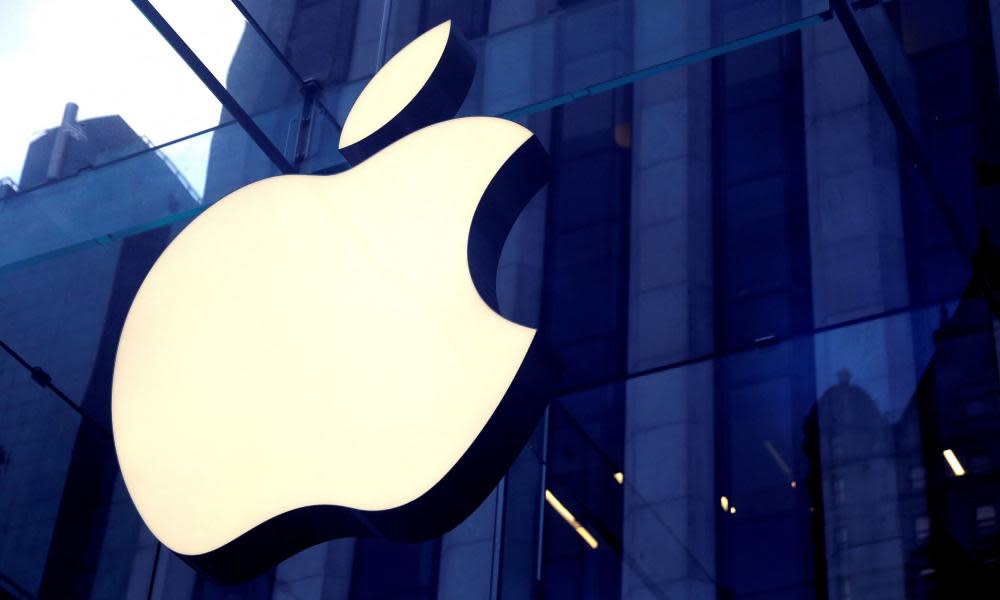‘People are stressed’: Apple workers set to begin first in-person union election

Workers at an Apple store in Towson, Maryland, are set to begin their in-person union election on 15 June and, if successful, the store would be the first to unionize at the US tech company.
Workers at the Maryland store – calling themselves the Coalition of Organized Retail Employees (AppleCore) – went public on 3 May with their intent to hold a union election, with the assistance of the International Association of Machinists and Aerospace Workers (IAM), shortly after an Apple store in Atlanta filed for a union election.
Related: Wells Fargo employees pushing to organize union across bank’s workforce
That store recently pulled its union election petition before voting began, citing Apple’s aggressive anti-union campaign launched in response to it. Another Apple store, in New York City, publicly announced a union organizing campaign in April and a Louisville, Kentucky, store announced their campaign in May, but neither has yet filed a petition for an election.
“The people who we have the biggest relationship with, our store leaders, almost have little to no say in what affects the workers,” said Onye Igwulu, a 24-year-old employee at the Apple store in Towson for about one year. “We’re standing up to make a better life for ourselves and our family that we feel we deserve and I think all workers deserve. We love our work extremely, we just want to have a say in the things that affect us.”
Eric Brown, an employee at Apple for two years, explained that morale dropped through the pandemic, with policies and Covid-19 protections changing unilaterally without input or consultation from workers, which contributed to workers seeking to unionize.
“We’re trying to make changes to actually have a right to a say in our workplace conditions, in how we’re treated, with pay, and policy changes,” said Brown. “There have been so many times where we said, ‘We’ve tried this thing, it doesn’t really work, it’s not going to work now that you’re trying to roll it out again, we think it should be this way.’ And the response is, ‘This is how the company wants it done,’ and then they change it.”
Brown also explained issues with compensation, as some new employees make more than workers who are training them, and that the wage rates don’t take into account workers taking on extra duties, such as being utilized to speak with non-English-speaking customers. He also argued the pay should better reflect the work they do, which goes beyond typical retail work, especially compared with the record revenues Apple has recently reported and billions of dollars in profit.
“If we’re providing those numbers, we’re hitting benchmarks, why are we not getting compensated for that,” added Brown. “People are stressed out, Covid has heightened a lot of things, whether it’s positive or negative, we see that on a daily basis. And we do want to be compensated for that work that we’re putting in.”
Brown argued the anti-union efforts in Atlanta provided insight to workers in Maryland about the tactics Apple would eventually use at their store to try to scare workers from voting for the union, which has included anti-union presentations, interrogations and hiring the same union avoidance law firm that Starbucks has retained, Littler Mendelson.
Apple also announced raises of starting wages to $22 an hour, just weeks after union organizing campaigns went public at three US stores.
Workers organizing criticized Apple’s response to union organizing drives as contradictory to the company’s supplier code of conduct and Apple’s human rights policy.
“Instead of living up to those values, and embracing the opportunity to empower us to act in the best interest of our stores, Apple’s corporate executives hired an outside third-party law firm with no understanding or interest in our credo or values to intervene and create an environment of fear and coercion,” said Derrick Bowles, a worker and organizer at the Apple store in Atlanta.
In Apple’s code of conduct policy for suppliers, in regards to collective bargaining, the policy states suppliers must remain neutral on their workers’ union organizing efforts.
“Supplier is not required to take an active role in supporting workers’ efforts to associate or organize, but supplier must ensure that workers can exercise their right to organize in a climate free of violence, pressure, fear, intimidation and threats,” states Apple’s policy.
Apple’s own internal policy on human rights also cites the company adheres to respecting internationally recognized human rights “as set out in the United Nations International Bill of Human Rights and the International Labour Organization’s Declaration on Fundamental Principles and Rights at Work”.
According to the International Labour Organization’s Declaration on Fundamental Principles and Rights at Work, members have an obligation to realize, promote and respect freedom of association and the effective recognition of the right to collective bargaining.
An Apple spokesperson said: “We are fortunate to have incredible retail team members and we deeply value everything they bring to Apple. We are pleased to offer very strong compensation and benefits for full-time and part-time employees, including healthcare, tuition reimbursement, new parental leave, paid family leave, annual stock grants and many other benefits.”

